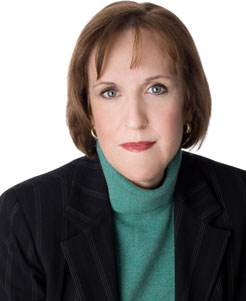
She has decided we should know her name. It is Vanessa Tyson. And she has decided we should know her story. It is that a man who is poised to become the governor of Virginia sexually assaulted her more than 14 years ago.
Now comes a test for the rest of us - one that shows what was learned, if anything, as the country processed hauntingly similar allegations last year against then-Supreme Court nominee Brett Kavanaugh.
Democrats and women's groups rallied in support of Christine Blasey Ford when she claimed that Kavanaugh had tried to force himself on her during a drunken encounter at a party of high schoolers in the early 1980s.
Will Tyson get the same reception, given that the target of her allegation is Virginia Lt. Gov. Justin Fairfax, a rising star in the Democratic Party and the man many hope will replace embattled Gov. Ralph Northam?
All of this comes as the entire Democratic leadership in Virginia is engulfed in overlapping scandals. Northam's political survival is on the edge after photos surfaced from his 1984 medical school yearbook showing someone in blackface standing alongside another individual wearing a Ku Klux Klan robe. And it became a perfect storm on Wednesday, when the state's attorney general, Mark Herring - second in line for the governorship behind Fairfax, should the office become vacant - said he, too, once donned blackface.
Fairfax's accuser, like Kavanaugh's, is an academic who lives in California. Tyson is a tenured professor at Scripps College in Claremont, California, and is on a yearlong fellowship at Stanford University, where she is involved in research on sexual violence against women and children. Like Ford, she cannot produce anyone who witnessed what she says she went through.
But, as with Ford, I keep coming back to the question: Why would she make this up?
Tyson surely is well aware of the ordeal that awaits her. Yet she decided Wednesday afternoon to go public with a lengthy and graphic statement about what she says happened.
In Tyson's telling, what began as consensual kissing in Fairfax's hotel room during the 2004 Democratic National Convention in Boston turned into a traumatic and violent struggle during which Fairfax physically overpowered her.
"As I cried and gagged, Mr. Fairfax forced me to perform oral sex on him," she wrote. "I cannot believe, given my obvious distress, that Mr. Fairfax thought this forced sexual act was consensual. To be very clear, I did not want to engage in oral sex with Mr. Fairfax and I never gave any form of consent."
Tyson did not speak to anyone for years about the alleged episode, she said, because she had "suppressed those memories and emotions as a necessary means to continue my studies, and to pursue my goal of building a successful career as an academic. At the time, I found this horrific incident especially degrading given my regular volunteer work at a local rape crisis center."
Fairfax insists the encounter was consensual. And, though he urged that Tyson be treated with respect - "I wish her no harm or humiliation, nor do I seek to denigrate her or diminish her voice" - that was not how he himself behaved toward her as word of her allegations seeped into the media.
Fairfax's first reaction was to smear her. He claimed, falsely, that The Washington Post had investigated her story and found "significant red flags and inconsistencies within the allegations." In truth, The Post had looked into her account after she approached the paper in November 2017, shortly after Fairfax was elected as lieutenant governor; our editors decided not to publish because The Post could not corroborate either version of events.
Fairfax has also suggested, without evidence, that the emergence of her account is the result of a political conspiracy against him, possibly by a Democratic rival. "Does anybody think it's any coincidence that on the eve of potentially my being elevated that that's when this smear comes out?" he asked reporters on Monday. It was easy to hear the echo of Kavanaugh blaming his predicament on "revenge on behalf of the Clintons."
The questions surrounding conflicting versions of Fairfax and Tyson will serve as a gut check. Where, exactly, should the standards of proof be set in the (hash)MeToo era and in the wake of Kavanaugh's confirmation?
Sexual assault is, practically by definition, something that happens during circumstances that are difficult to corroborate. Proof is difficult to come by.
That means the first thing we owe the women who come forward is an opportunity to tell their own stories, their own ways.
There probably will never be any way to know for sure what happened in Fairfax's hotel room back in 2004. But, from what we have learned about the Virginia lieutenant governor over the past few days, we should have real doubts about whether he has earned our trust, much less a promotion.
Previously:
• 02/07/19 To fix the border, put Washington in time-out
• 11/05/18 Watch these races for governor
• 08/02/18 How left will Democrats go? Watch Michigan
• 07/05/18 Left's rallying cry to 'Abolish ICE' will fail --- just ask Gingrich
• 02/08/18 Dems are hoping for an election wave, but they shouldn't be too confident
• 05/03/17 Pelosi: Let's say we welcome pro-lifers in order to win
• 03/31/17 Trump struggles against some of the forces that helped get him elected
• 01/19/17 How Donald Trump came up with 'Make America Great Again'
• 11/17/16 Giddy governors gloat at gathering
• 09/26/16 What Clinton and Trump must worry about in the first debate
• 07/18/16 Dennis Kucinich's sister and her husband are among former Dems jumping on the Trump train --- how many more will follow?
• 05/10/16 Many Republicans are eating their nasty words about Trump
• 04/06/16 GOP has chosen candidate who has flouted a litany of its once-sacred conservative principles
• 04/06/16 GOP front-runner's loss may be no ordinary setback
• 03/17/16 Delegates are GOP's ultimate wild card: Making sense of the process
• 03/14/16 Trump has lit a fire ---- can it be contained?
• 02/24/16 Sanders has the resources and a plan to go the distance. Will it matter?
• 02/09/16 Why the feminist appeal isn't working for Hillary in New Hampshire
• 02/03/16 The photo finish on caucus night showed that Democratic voters are looking for qualities beyond experience and electability


 Contact The Editor
Contact The Editor
 Articles By This Author
Articles By This Author